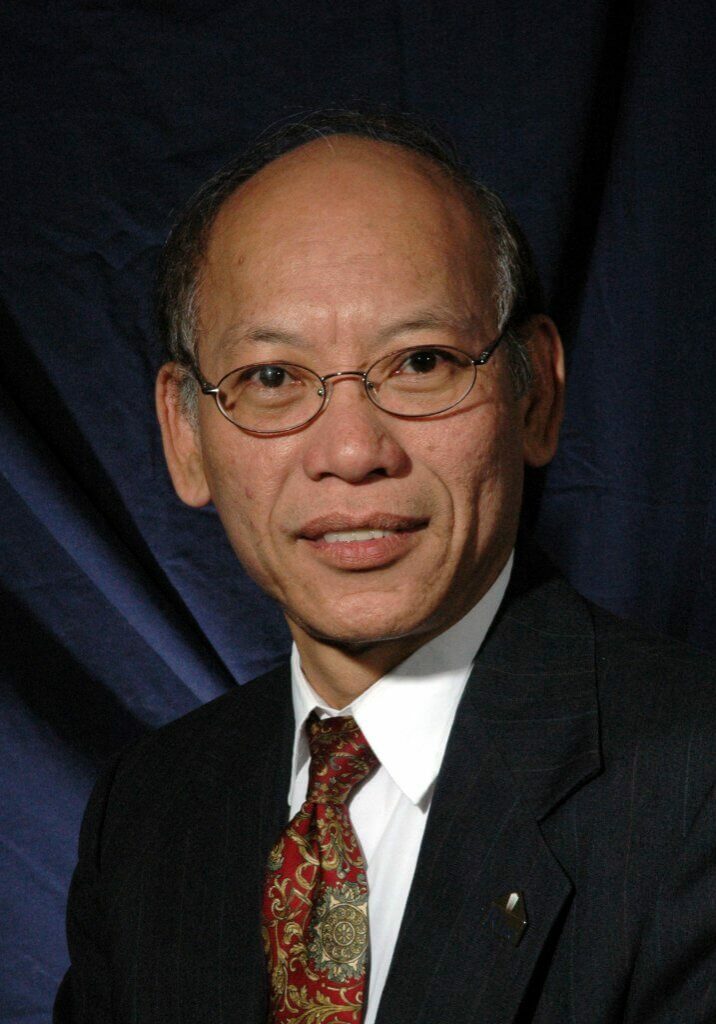Truc Pham’s work with refugees will be felt for generations to come
Feb 25, 2020

Rise and the Twin Cities community lost an honorable colleague and friend with the passing of Truc Pham who died January 15 at the age of 65.
Since 1996, Truc was the director of Rise’s welfare-to-work programs which served primarily refugees and immigrants resettling in the Twin Cities area.
Truc spent most of his adult life working to improve the lives of minority members from many different races, cultures, and ethnic backgrounds, most of whom had disabilities, low education, language barriers, and limited work histories in the United States.
“I admired Truc for taking all the challenges, heartaches, and difficulties of his younger life to work for others,” said Rise President Lynn Noren. “He knew firsthand what immigrants and refugees had lived through and the challenges they faced coming to America and integrating into a new culture. The work he did at Rise for the past almost 25 years was extraordinary and will leave a mark on people for generations to come.”
Born in North Vietnam, Truc’s family was among the more than one million people who fled to South Vietnam to avoid persecution for being Catholic. They settled in Taung Chanh, a small town near Saigon.
Truc’s father worked at an international military installation which had an American school for the workers’ children. At the age of 10, Truc implored his father to attend this school so he could learn English and get a good education which he felt would be his ticket to a better life.
His father consented and Truc took a 30-mile bus ride alone each school day and thrived in this challenging learning environment as he was a quick and smart learner. Even at a young age, Truc decided that his long-term career goal was to get a job with the Vietnamese State Department.
Following his graduation from high school in 1971, Truc went on to college and studied English and law enforcement at Saigon University. He worked as a chief of police in Saigon, and for a time, with the U.S. Drug Enforcement Agency (DEA).
After the fall of Saigon in 1975, Truc endured several years of imprisonment before escaping and then risking his life as one of the “boat people” who set out to sea three separate times on overcrowded boats in search of freedom and a better life. (Twice they were captured and returned to a “re-education” camp.)
Truc was finally rescued by the French government when an impending storm threatened the lives of everyone crammed together in a small wooden boat.
Arriving in the United States as a refugee with little else but the shirt on his back, Truc eventually settled in Minnesota and began to rebuild his life. He attended a local university to reestablish his educational credentials and build marketable skills to start a new career.
Truc first worked for a Twin Cities community rehabilitation center providing counseling and technical support to people receiving welfare assistance. This position eventually led him to interview for a job at Rise.
A new interagency project was getting off the ground to better serve the employment needs of the growing number of refugees and immigrants with disabilities from Southeast Asia who were resettling in Minnesota. Truc had the personality and professional experience required to lead this project.
“Truc was not only successful in managing Rise’s Pathways project, but he became the leading force behind Rise’s development of multiple programs and services to support the job placement needs of job seekers from diverse minority backgrounds and their families,” said former Rise vice president, Don Lavin, who first hired Truc.
“The programs designed and operating under Truc’s direction were a couple of decades ahead of their time,” Don added. “All of these programs were staffed by a skilled multicultural and multilingual team of professionals.
“The end result was immediate and measurable. Rise’s welfare-to-work program became among the top performing programs in Hennepin County.
“Further, two of Truc’s outstanding interagency programs received national recognition for excellence as an ‘emerging, promising practice.’ During his time at Rise, approximately 2,000 people obtained competitive employment, workforce inclusion, and greater economic prosperity.”
Despite his years of mistreatment and imprisonment in Vietnam, Truc realized that harboring hate would only corrode and destroy his very core. Instead, he looked forward with a hopeful spirit and optimism.
Truc was a doer. He understood great things could be achieved when teaming and sharing resources with many like-minded people and agencies. He worked hard until his failing health in the last year limited his capacities to do the job.
Truc was a proud father and husband who loved his family very much. He is survived by his wife Hoa, and three sons Tony, Tyler, and Don, ages 16-20. An active member of St. Adalbert Church in St. Paul, Truc enjoyed spending time with his fellow Vietnamese parishioners and friends, celebrating their cultural heritage.
“We will work hard to carry out Truc’s groundbreaking work and the legacy he has built,” said Tim Dickie, Rise’s chief program officer. “While we will all miss him very much, Truc left us with the tools and the services we will need to continue to move forward.”
A memorial reception will be held in May to honor Truc. More information will be coming soon. We hope you will join Rise team members and Truc’s family as we celebrate his life and legacy.
This article appears in the March 2020 issue of the Rise Reporter.